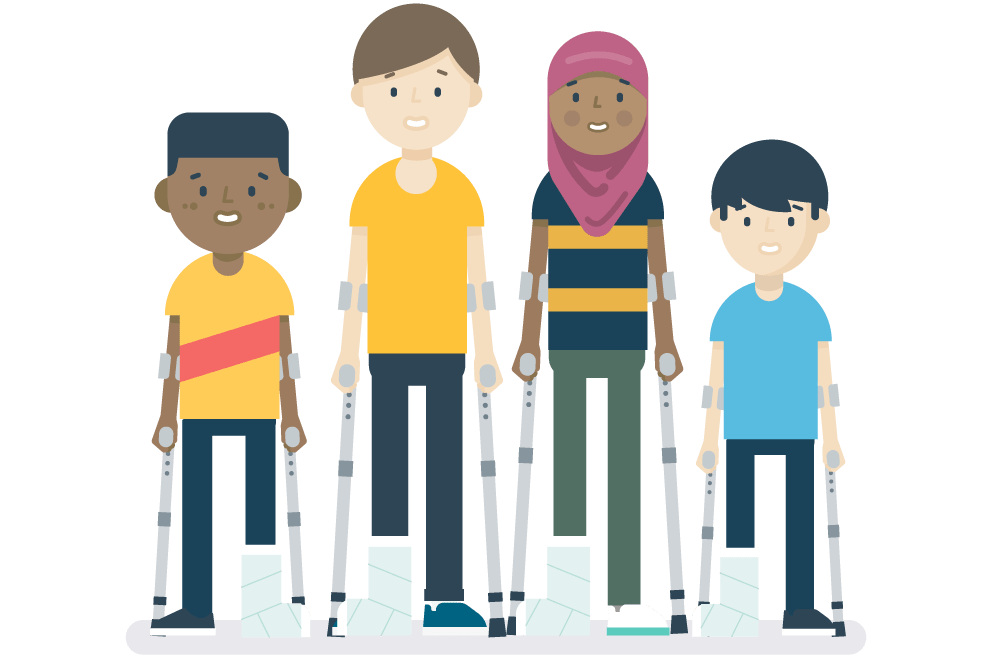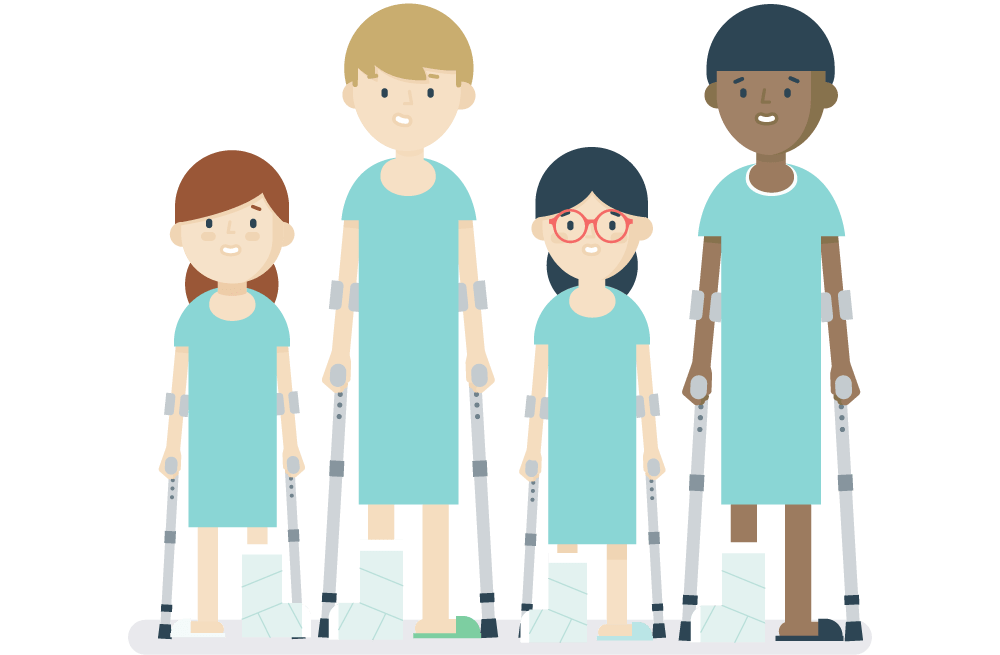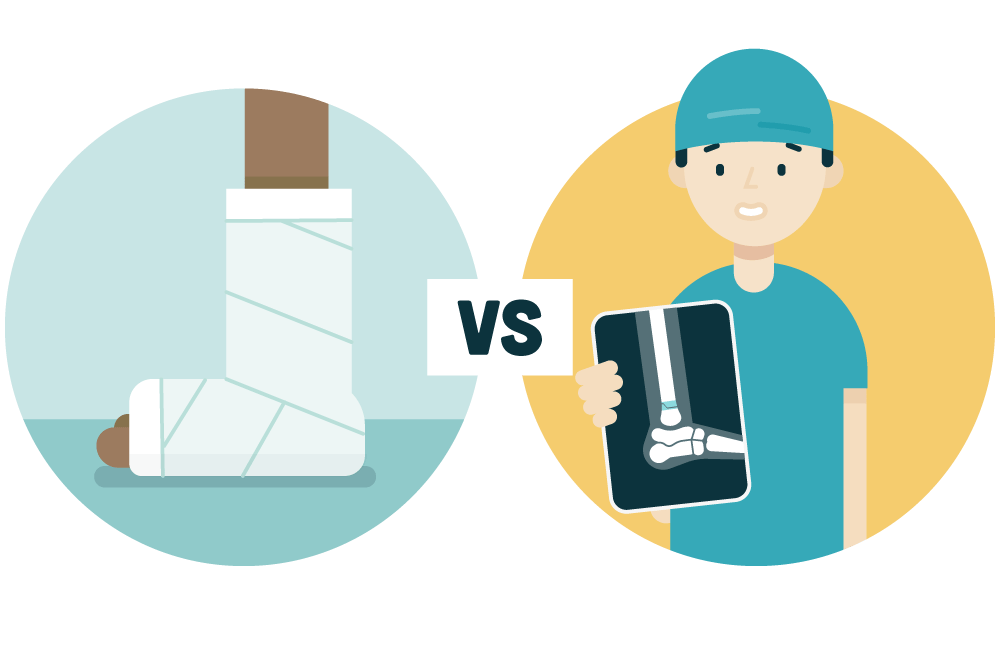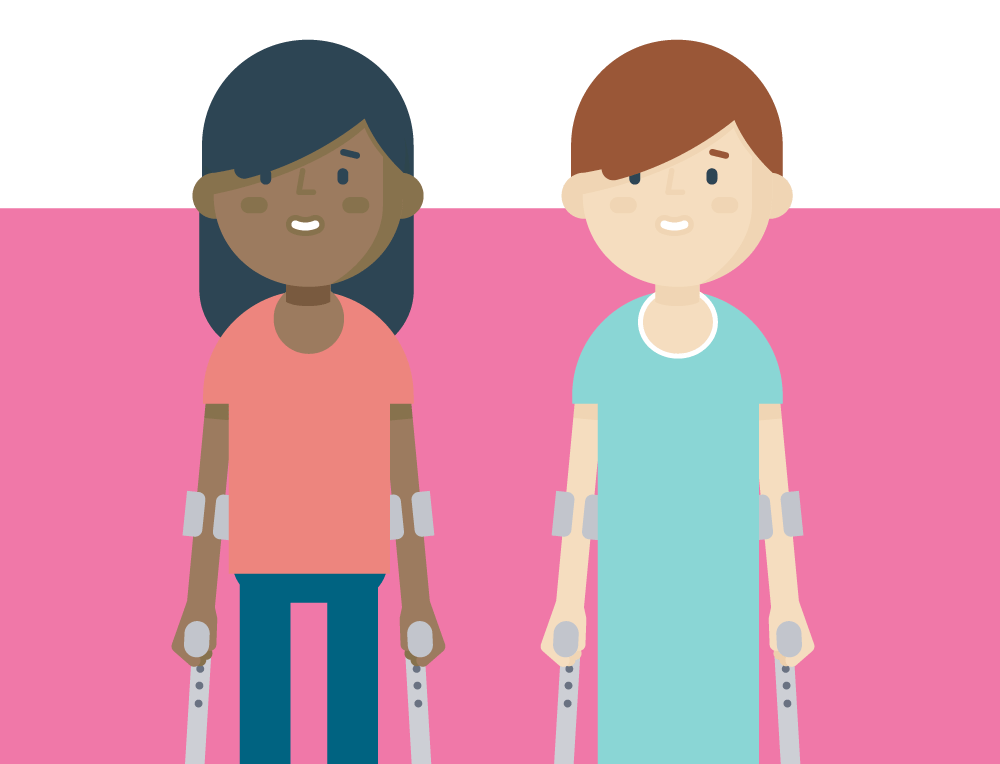
Odd Socks study
When children between 8 and 15 years-old break their ankles, do they need surgery to reset the bones, or will nature ‘correct’ the bones as they heal without restricting function using a plaster cast?
Participant Information Animation
Participant Information Animation
The Odd Socks study will compare surgery to perfectly realign ankle fractures, to treating the bone in a cast without correcting the fracture position.
This animation provides a summary of the study.

Background
Broken ankles in children often involve the area from which the bone grows – the growth plate. Following growth plate injuries, the growth of the main shin bone in the lower leg (the tibia) can be altered permanently, which can cause the bone to not grow at all, or to grow wonky. The younger the child at the time of injury (i.e. the more they have to grow) the worse the problem may get once the child has fully grown. These growth plate injuries can cause differences in the length of the legs or can make the affected leg grow crooked. The altered growth may affect function and may risk problems in the future. Later on after injury operations may be needed to improve the appearance of the leg and ensure that it functions normally.
Some surgeons believe that these injuries should have surgery early on to ensure the growth plate is perfectly realigned. They believe that this will reduce the chance of abnormal growth. Other surgeons believe that this surgery is not necessary, and that surgery may increase the risk of abnormal growth as the growth plate may be ‘scraped’ and damaged by the procedure. We do not know which treatment offers the best outcome due to the lack of high-quality scientific evidence.

Aims
The Odd Socks study will compare surgery to perfectly realign the fracture, to treating the bone in a cast without correcting the fracture position. The important finding will be how well the children and young people can function (i.e. walk/run/play/participate in sport) two years after the condition was first identified, along with the length and appearance of the leg.
Outcomes of Displaced Distal tibial fractures - Surgery Or Casts in KidS
Cards

Take Part
For more information on what will happen if you decide to take part

About the Study
Follow the link below to learn more about the Odd Socks study

Contact
If you have any questions or would like to speak to a member of the research team please use the link below